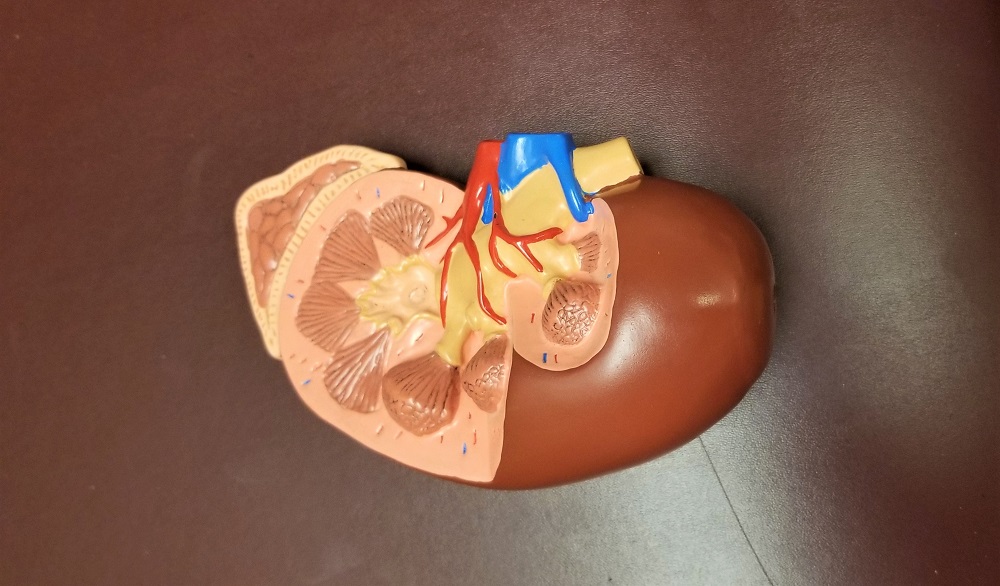Men are twice as likely to get kidney stones than women. And people aged 20 to 50 are at the highest risk of kidney stones. However, various factors can increase your risk of developing a stone.
You may be more at risk of kidney stones if you:
- Have had kidney stones before
- Eat high levels of protein, salt, or glucose
- Suffer from obesity
- Have had gastric bypass surgery or another intestinal surgery
- Suffer from polycystic kidney disease or another cystic kidney disease
- Have a condition that causes your urine to contain high levels of cysteine, oxalate, uric acid, or calcium
- Use certain medicines, such as diuretics (water pills) or calcium-based antacids
- Suffer from inflammatory bowel diseases or frequent urinary tract infections
There is more than one type of kidney stone, and knowing what type you have can help determine the cause of your kidney stones.
Types of Kidney Stones
Identifying what type of kidney stone you have can determine its cause and help you avoid or reduce the chances of developing more kidney stones in the future.
Calcium Stones
Calcium stones are the most common type of kidney stones. They are usually formed from calcium oxalate but are sometimes made of calcium and phosphate. Oxalate is a substance made daily by your liver or absorbed from your diet. Certain fruits and vegetables, as well as nuts and chocolate, have high oxalate content.
Struvite Stones
Struvite stones can form when you have a urinary tract infection (UTI). A UTI can cause bacteria to make ammonia, and the ammonia builds up in your urine. Struvite stones can grow quickly and become quite large, sometimes with few symptoms or little warning.
Uric Acid Stones
Uric acid stones can form when your urine is too acidic. People who lose significant amounts of fluid because of chronic diarrhea or malabsorption, those who eat a high-protein diet, and those with diabetes or metabolic syndrome are at a higher risk for uric acid stones. Certain genetic factors also may increase your risk of uric acid stones.
Cystine Stones
Cystine stones are the rarest kind of kidney stone. They are caused by a hereditary disorder called cystinuria. Cystinuria can make the kidneys excrete too much amino acid, which builds up in the urinary tract and causes cystine stones.
Kidney Stone Symptoms
In the early stages, a kidney stone will not usually cause symptoms. And small kidney stones may cause minor pain or even pass unnoticed. This is because the smaller the stone, the less difficult it is to pass, and the less likely it will get stuck.
When a stone becomes stuck in your urinary tract, you will experience moderate to severe symptoms. This is called renal colic.
Kidney stone symptoms include moderate to severe pain in the back or abdomen area.
If a kidney stone becomes lodged in a ureter, it may block the flow of urine. This could cause the corresponding kidney to swell and the ureter to spasm. This will be felt as pain as well.
The most common symptoms of kidney stones include:
- Severe, sharp pain in the side and back, below the ribs
- Pain that radiates to the lower abdomen and groin
- Pain that comes in waves and fluctuates in intensity
- Pain or burning sensation while urinating
Other symptoms include:
- Blood in the urine (red, pink, or brown urine)
- Discolored or foul-smelling urine
- Urinating small amounts of urine
- Chills and fever
- Nausea and vomiting
- Frequent need to urinate
What To Do If You Think You Have a Kidney Stone
If you are experiencing any of these symptoms and think you may have a kidney stone, it’s essential to seek medical treatment immediately. Book an appointment with a medical professional at CityHealth Urgent Care.
If left untreated, kidney stones can put pressure on the kidneys, block normal urine flow, and cause infection. However, these complications are rare as most kidney stone cases are treated quickly.
Your medical professional will recommend the best treatment after a complete exam.
Kidney Stone Treatment
The treatment for a kidney stone depends on the stone’s size, the cause of the stone, what symptoms you are experiencing, and whether the stone is blocking your urinary tract.
Diagnosis of kidney stones requires a complete health history assessment and a physical exam. To answer these questions and determine the proper treatment, your medical professional might ask to run some tests.
These tests could include:
- Blood tests for calcium, phosphorus, uric acid, and electrolytes
- Blood urea nitrogen (BUN) and creatinine tests to assess kidney functioning
- Urinalysis to check for crystals, bacteria, blood, and white cells
- Examination of passed stones to determine their type
If your medical professional is concerned a kidney stone is obstructing your urinary tract, they may run one or more of the following tests:
- Ultrasound of the kidney (the preferred test)
- Abdominal X-rays
- Intravenous pyelogram (IVP)
- Retrograde pyelogram
- MRI scan of the abdomen and kidneys
- Abdominal CT scan
If your test results show that your kidney stone is small, your doctor may prescribe pain medication and plenty of fluids to allow the kidney stone to pass naturally.
If your kidney stone is large or blocks your urinary tract, your medical professional may discuss further treatment options. The most common treatments for large or obstructing kidney stones are:
- Lithotripsy is a treatment that uses lasers to break up large kidney stones into small pieces. This allows them to pass through the urinary tract.
- Ureteroscopy is a treatment in which a small telescope is passed through the urethra to find the stone. Then, the stone is removed. If the stone is small, it’s removed in one piece. If the stone is larger, lasers may be used to break it up before removal.
How to Prevent Kidney Stones
It’s not always possible to prevent kidney stones. Medications, pre-existing conditions, and family history can put you at risk for developing kidney stones. However, there are many steps you can take to reduce the risk and, for some people, avoid kidney stones completely.
- Proper hydration is a critical preventive measure. About 8 cups of water a day is enough to flush minerals through your system and help prevent kidney stones.
- Changing your diet can help prevent kidney stones. Limit your intake of oxalate-rich foods. This includes peanuts, rhubarb, spinach, beets, chocolate, and sweet potatoes.
- Limit excessive salt and sugar intake, and focus on natural sugars over glucose.
- Eat animal protein in moderation.
- Add more calcium-rich foods to your diet, like yogurt, milk, and cheese.
Don’t Leave Kidney Stones Untreated
If you are experiencing any symptoms of kidney stones, or you are at high risk for kidney stones, speak to a medical professional at CityHealth Urgent Care.
At CityHealth, we have an onsite imaging lab and a fully equipped medical testing lab so that you can get your test results back immediately.
Our patient-centered approach means we will work with you to determine the cause of your kidney stones and develop a personalized treatment plan that works with you.
Book a visit at our San Leandro or Oakland location, or call us at (510) 984-2489 for more information.




